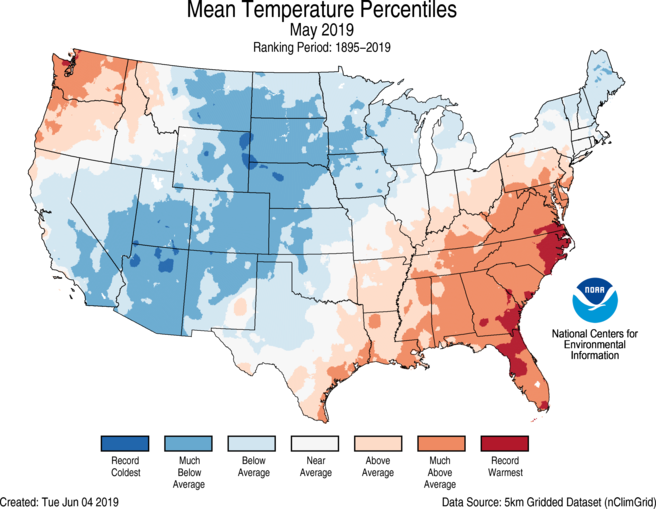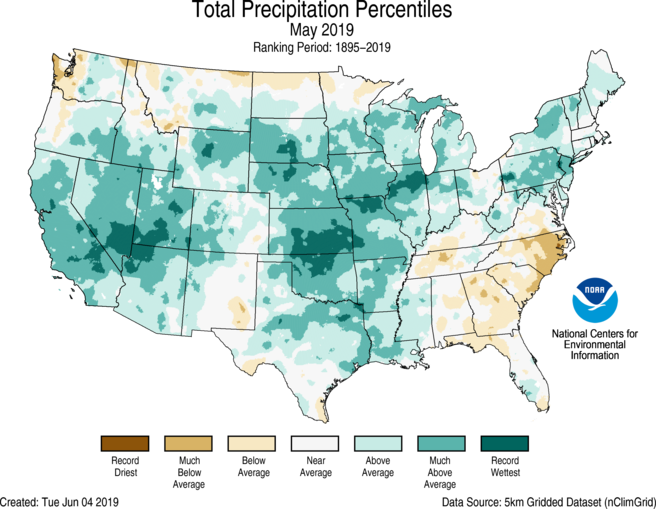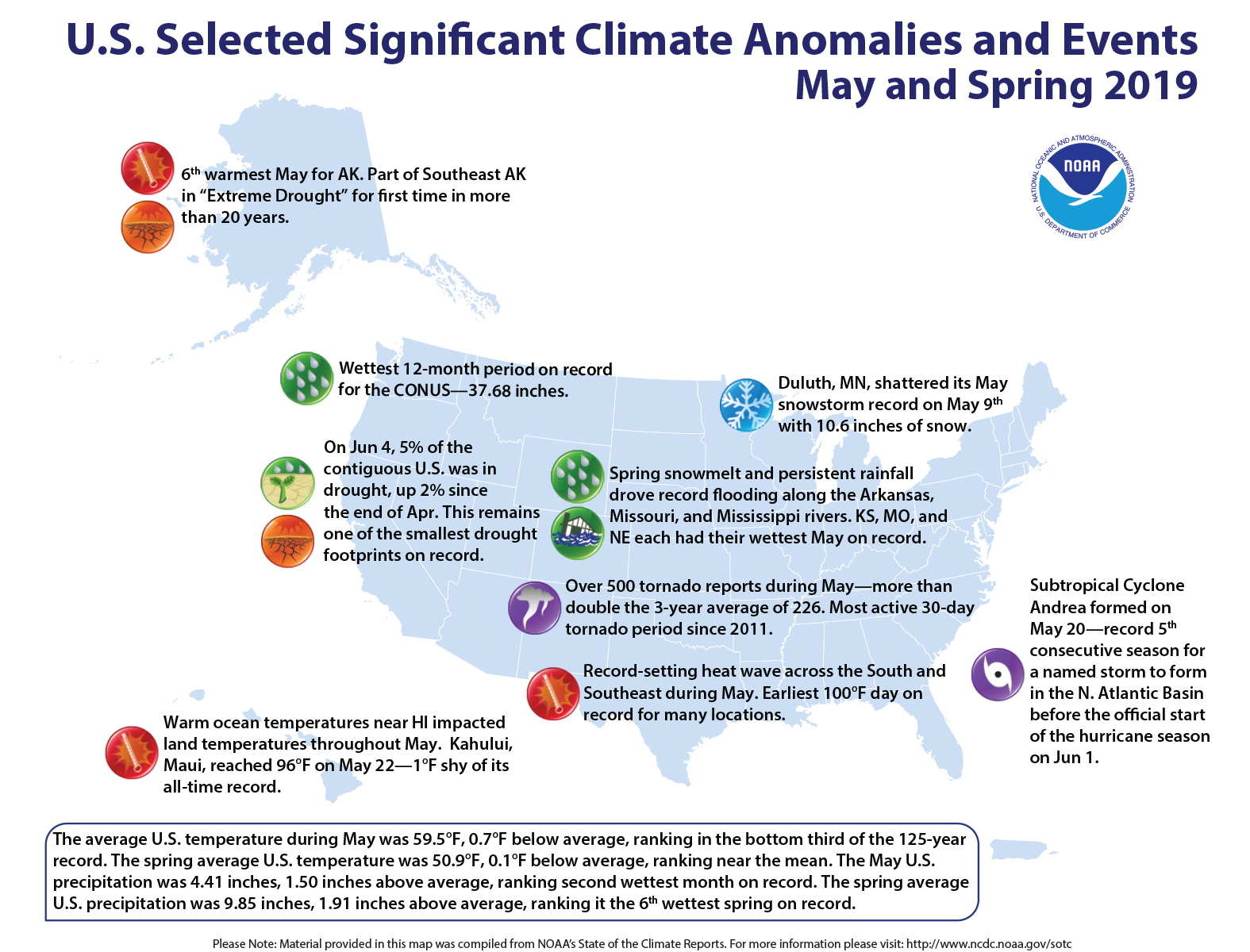Rain-Soaked U.S. Had its Second Wettest May
Here are more highlights from NOAA's latest climate report:
Climate by the numbers
May 2019

The average May temperature across the contiguous U.S. was 59.5 degrees F (0.70 degrees below the 20th-century average), which ranked in the bottom third of the 125-year record.
The average precipitation for May was 4.41 inches, 1.50 inches above average and ranked second wettest in the 125-year record. The wettest month on record remains May 2015, with 4.44 inches, according to scientists at NOAA’s National Centers for Environmental Information.
Soggy conditions from June 2018 through May 2019 led to the wettest 12-month period on record in the U.S., with 37.68 inches, 7.73 inch above average.

Year to date and Meteorological Spring
The average U.S. temperature for the year to date (January through May) was 43.4 degrees F (0.10 of a degree above the 20th-century average), which falls in the middle third of the year-to-date record.
The average temperature for the contiguous U.S. during Meteorological Spring (March through May) was 50.9 degrees F (0.10 of a degree below average), which also ranked in the middle third of the record.

Other notable stats
- Tornado troubles: May 2019 was the most active 30-day tornado period in the U.S. since 2011; more than 500 were reported.
- Early action in the tropics: Subtropical Cyclone Andrea formed on May 20, making 2019 the fifth-consecutive year where a named storm developed in the North Atlantic Basin before the official start of the hurricane season on June 1.
- Snow still fell: Duluth, Minnesota, had 10.6 inches of snow on May 9, breaking the city’s snowstorm record for May. Denver, Colorado, had its snowiest May in 44 years and tallied 3.9 inches.